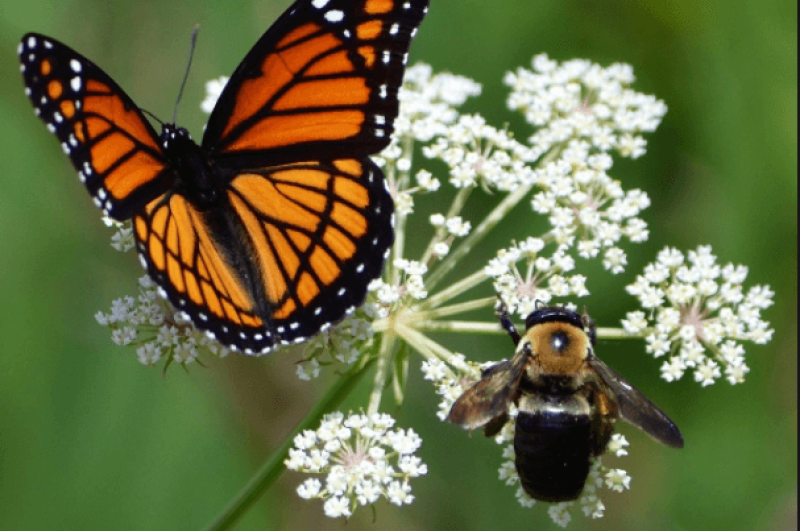Ecologists and biologists compared data of about 1,500 agricultural fields around the world, including corn fields in the American plains, oilseed rape fields in southern Sweden, coffee plantations in India, mango plantations in South Africa and cereal crops in the Alps. They analyzed two ecosystem services (i.e., processes regulated by nature that are beneficial and free for humans): the pollination service provided by wild insects and biological pest control service, which is the ability of an environment to use predatory arthropods present in the ecosystem to defend itself from harmful insects.
In heterogeneous landscapes where the variation of crops, hedges, trees and meadows is greater, wild pollinators and “beneficial” insects are more abundant and diversified. Not only do pollination and biological control increase, so does the crop yield. On the other hand, monocultures are the cause of roughly a third of the negative effects on pollination that result from landscape simplification (measured by loss of pollinator richness). This effect is even greater with the control of harmful insects, where loss of natural enemy richness represents 50 percent of the total consequences of landscape simplification.
“Our study shows that biodiversity is essential to ensure the provision of ecosystem services and to maintain a high and stable agricultural production,” explains Matteo Dainese, a biologist at Eurac Research and first author of the study. “For example, a farmer can depend less on pesticides to get rid of harmful insects if natural biological controls are increased through higher agricultural biodiversity.” The researchers recommend to protect environments whose health is maintained through biodiversity and to diversify crops and landscapes as much as possible.
“Under future conditions with ongoing global change and more frequent extreme climate events, the value of farmland biodiversity ensuring resilience against environmental disturbances will become even more important,” underlines animal ecologist Ingolf Steffan-Dewenter from the Department of Animal Ecology and Tropical Biology at the University of Würzburg, the initiator of the study within the EU project “Liberation.” “Our study provides strong empirical support for the potential benefits of new pathways to sustainable agriculture that aim to reconcile the protection of biodiversity and the production of food for increasing human populations.”
Original story: Study: Biodiversity improves crop production































